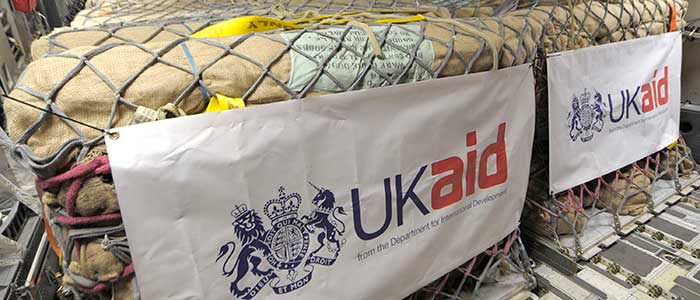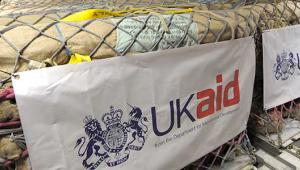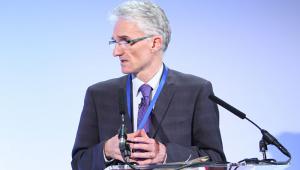Private sector firm Adam Smith International (ASI), which has received a total of almost £300m ($375m) in UK aid, was found to have “acted improperly” to manipulate the outcome of a parliamentary inquiry into the effectiveness of the aid it delivers.
British newspaper the Mail on Sunday (MoS) first reported the accusations in December last year, after a whistleblower alleged ASI had faked glowing testimonials from its partners overseas to be submitted as evidence into the parliamentary watchdog’s inquiry.
After looking into the claims, the International Development Select Committee published a report detailing its conclusions yesterday. The chair of the committee, Stephen Twigg, described it as “damning”.
“The committee deplores the inappropriate conduct shown by ASI – the attempts to conceal their involvement in collecting beneficial testimonials about their work, and the application of pressure on beneficiaries to submit evidence,” he said.
“Furthermore, ASI sought to unduly influence the committee by engineering submissions of written evidence. This shows blatant disregard for the proceedings of select committees and, by extension, the House of Commons.
“Taken together, the actions of ASI were entirely inappropriate and show a serious lack of judgment.”
Twigg said the “serious concerns” the investigation raised about the culture within one of the leading contractors involved in the delivery of UK aid will inform its wider inquiry into the increasing use of for-profit contractors by the country’s Department for International Development.
The allegations against ASI included claims that the contractor had passed off testimonials it had written itself as being authored by beneficiaries overseas, removing incriminating metadata.
In emails to ASI staff, leaked to the MoS, Peter Young, director of ASI, said care had to be taken to ensure an ASI employee was not identified as having created or amended documents and warned staff against pretending to be “illiterate farmers” while writing in “perfect English”.
The IDC said ASI had “overstepped the mark” in soliciting written evidence from its beneficiaries, and applied undue pressure to them to highlight the success of ASI programmes, sometimes with either explicit or implicit references to an impact on funding if the beneficiary failed to do so.
It also said that the contents of the emails suggested ASI removed the metadata to distance the organisation from the testimonials, rather than protect staff privacy as ASI had argued.
The inquiry also found that, in some cases, DFID had been aware of the approach of ASI in soliciting the proposals. Priti Patel, the secretary of state for international development, said an investigation was underway to identify any role DFID staff might have played in the submissions.
In a statement, DFID said that, like the IDC, it was “very concerned about the culture and behaviour of ASI”.
“Since these allegations came to light, we have frozen awards of new contracts to ASI and we are taking detailed advice on the next steps.”
Saira O’Mallie, interim UK director at anti-poverty group The ONE Campaign, urged DFID to make an example of ASI to “stamp out such deceit” and prevent the further erosion of public trust in UK aid.
“The onus is now on DFID to show such abuses will not be tolerated … it must police with authority all the work contracted to the private sector as it becomes a pivotal vehicle for UK aid delivery,” she stated.
“That means open books, open contracts and more transparency that leads to action and reform of aid suppliers.”
Aisha Dodwell, an aid campaigner from Global Justice Now, an NGO that has been highly critical of DFID’s work with ASI, said: “[The events] show contempt for the vulnerable communities in other countries who should be benefiting from UK aid spending, who have been used as pawns to try and justify the enormous consultancy fees that ASI is getting from DFID.
“Our research has shown that, in 2014 alone, DFID spent £90m ($112m) through the company, which witnessed a whopping £14m ($17m) profit that same year.”
ASI said it was pleased to have been cleared of accusations that it had completely faked testimonials, and that all beneficiaries and counterparts wrote or signed off on what was submitted.
While it said it had acted “in good faith”, it added that “clearly there were mistakes made” and that in hindsight the organisation was “over ambitious” in trying to secure a large number of testimonials in a short time.
“We have extended our sincere regrets,” ASI said. “We are reflecting very carefully on the findings of the IDC report and we have already taken rigorous steps to tighten procedures and strengthen oversight.”














